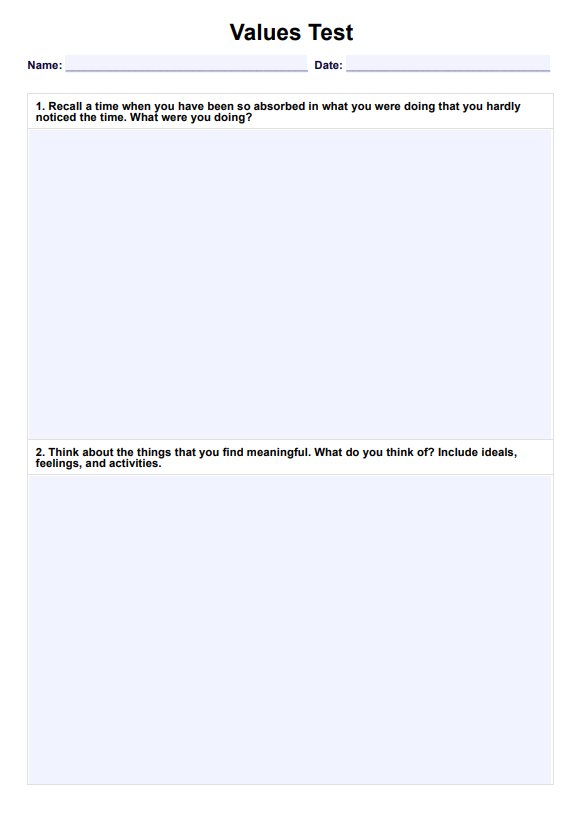Assessing values is important because it helps individuals understand what drives their behavior, decision-making, and goals. By identifying their core values, people can align their actions with what truly matters to them, leading to greater personal fulfillment and satisfaction.

Values Test
Use the Values Test and help your clients discover their personal values. Learn how to use them in decision-making with our free PDF template.
Values Test Template
Commonly asked questions
Values assessment tests are tools used to help individuals identify and understand their core values. These tests typically involve a series of questions or statements that ask individuals to rate their level of agreement or importance for various values. The results provide a profile of the individual's values, which can be used for personal growth, career development, or team building.
According to Rokeach, values are enduring beliefs people hold about what is suitable and desirable. He identified two types of values: terminal values, which are the end goals or outcomes that people strive for, and instrumental values, which are the means or methods used to achieve those goals.
EHR and practice management software
Get started for free
*No credit card required
Free
$0/usd
Unlimited clients
Telehealth
1GB of storage
Client portal text
Automated billing and online payments











